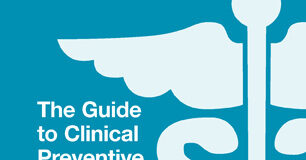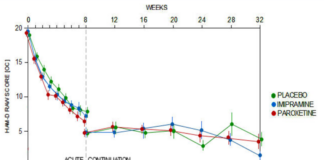Tag: BMJ
What We Must Learn From the US Opioid Epidemic
From The BMJ: There is no doubt that America's opioid epidemic is a national crisis that needs to be addressed. However, we must be careful...
Experts Concerned That Depression Screening Will Lead to Overdiagnosis
Behind the U.S. task force recommendation to screen all children and adults for depression.
Study 329 Taper Phase
Most doctors still affect surprise at the idea SSRIs might come with withdrawal problems. Regulators knew very clearly since 2002 about the problems, but have decided to leave any communication of these issues in company hands.
Study 329 Continuation Phase
All the fuss about Study 329 centers on its 8-week acute phase. But this study had a 24-week Continuation Phase that has never been published. Until Now.
Restoring Study 329: Letter to BMJ
When we set out to restore GSK’s misreported Study 329 of paroxetine for adolescent depression under the RIAT initiative, we had no idea of the magnitude of the task we were undertaking. After almost a year, we were relieved to finally complete a draft and submit it to the BMJ, who had earlier indicated an interest in publishing our restoration. But that was the beginning of another year of peer review that we believed went beyond enhancing our paper and became rather an interrogation of our honesty and integrity. Frankly, we were offended that our work was subject to such checks when papers submitted by pharmaceutical companies with fraud convictions are not.
Suicide Rates Rise While Antidepressant Use Climbs
Multiple media sources are reporting on new data from the CDC revealing a substantial increase in the suicide rate in the United States between 1999...
“BMJ Editor Fiona Godlee Takes on Corruption in Science”
In this video from CBC News, BMJ editor Fiona Godlee takes on “corruption of the scientific process.” "There will be commercial pressures, academic pressures,...
“Drug Trials Not Reported in Line with Ethical and Legal Demands”
“Decisions about the effectiveness of drugs are being made with incomplete information because results of almost three-quarters of clinical trials are still not published...
Brain Imaging Reveals Psychiatric Disorders are Not Neurological Disorders
Some researchers have been arguing to reclassify all psychiatric disorders as diseases of the brain and nervous system, similar to epilepsy or Parkinson's disease. Neuroimaging research, however, reveals that psychiatric disorders appear to be distinct from neurological disorders, according to a new study published in this month’s issue of the British Journal of Psychiatry.
Psychiatric Survivors Left Out Of UK Smoking Ban Debate
As the UK debates whether to ban smoking inside and outside of mental health hospitals, the BMJ has solicited opinion pieces on the debate for an upcoming issue. However, psychiatric survivors have come forward alleging that the BMJ refused to print their pieces unless they removed descriptions of forced treatment and coercive care.
“How Too Much Medicine Can Kill You”
In an op-ed for the Guardian, cardiologist Aseem Malhotra writes: “Corporate greed and systematic political failure have brought healthcare to its knees. There are too many misinformed doctors and misinformed patients. It’s time for greater transparency and stronger accountability, so that doctors and nurses can provide the best quality care for the most important person in the consultation room – the patient.”
Study 329: Conflicts of Interest
The BMJ states that it takes on average eight weeks from submission of an article to publication. The review process for Restoring Study 329 took a year, with a three-month review process involving six reviewers to begin with, and then a further four reviews in a four-month process, leading to a provisional acceptance in March that was withdrawn.
The SSRIs and Ten Years of Misleading Advertising: Who is Responsible?
In the BMJ this week there is a debate about the antidepressants. On the “Yes, The antidepressants are overprescribed” side is Des Spence. This is hardly a new debate and Des Spence makes a good case for the overuse of the antidepressants, but what caught our eye was the response by Adrian Preda, and his discussion about the findings of Irving Kirsch.














